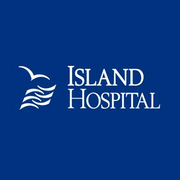
Kidney stones are small, hard mineral and salt deposits produced by the kidneys and passed through the urinary tract. The associated pain can send a person to the emergency room or the nearest doctor. While they require prompt treatment, kidney stones are not typically dangerous if addressed in a timely manner. They're quite common as well, affecting every one in 10 people. Here’s what you should know.
A Guide to Kidney Stones
What causes kidney stones?
A kidney stone forms when your urine is made up of more crystallizing substances than it can effectively dilute. These substances include calcium, oxalate, and uric acid. There are several reasons why a person might have an excess of these substances, such as poor dehydration, a diet high in sugar or salt, obesity, or weight loss surgery.
What are the symptoms?
A kidney stone can vary greatly in size, from a grain of sand to a large pebble. While passing any stone can be painful, the pain is usually more intense when it’s bigger.
Severe, sharp pain usually presents on the sides or lower back, accompanied by nausea and, in some cases, vomiting, fever, or chills. Urine appears cloudy or reddish and smells foul.
How are kidney stones treated?
 When you go to the emergency room or visit your doctor, they’ll encourage the natural removal of the stone before considering surgery. That means it will have to pass through your urinary tract. They usually ask you to drink plenty of water to help facilitate this process.
When you go to the emergency room or visit your doctor, they’ll encourage the natural removal of the stone before considering surgery. That means it will have to pass through your urinary tract. They usually ask you to drink plenty of water to help facilitate this process.
If unsuccessful, the doctor might perform extracorporeal shock wave lithotripsy, which breaks up the stone noninvasively with soundwaves. Another method is a ureteroscopy, in which an endoscope removes the stone. They could also perform percutaneous nephrolithotomy, which fragments the stone into pieces by inserting a needle into it.
How can you prevent them?
Drink at least eight, eight-ounce glasses of water a day to stay hydrated. Minimize the intake of sugars and overly salty or sodium-rich foods.
If you're overweight, aim to maintain a healthy goal weight with a well-balanced diet and regular exercise. High-protein diets can increase the risk of kidney stones in some people, so always consult your doctor before starting new dietary habits.
If you have kidney stones, the doctors at Island Hospital are here to help. Since 1962, they’ve served Anacortes, WA, and the surrounding area. They’re a full-service hospital with an emergency room, walk-in clinic, birth center, pediatric and cancer care providers, and sleep wellness specialists. Call (360) 299-1300 to schedule an appointment, or visit them online to learn more about them.
About the Business
Have a question? Ask the experts!
Send your question

